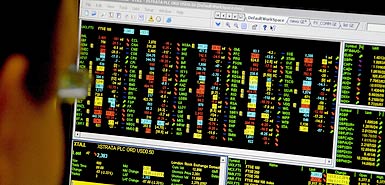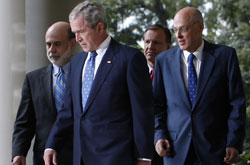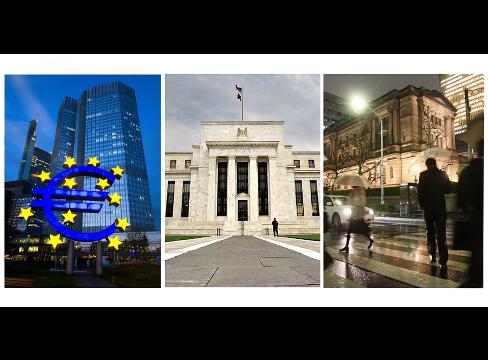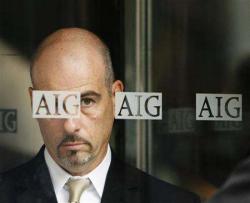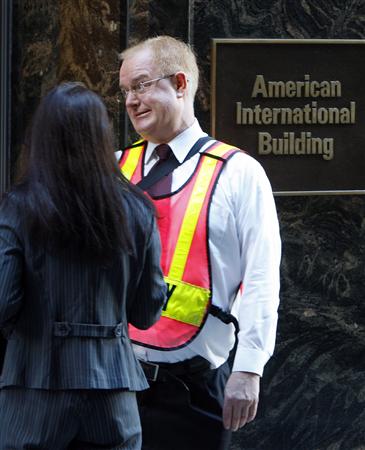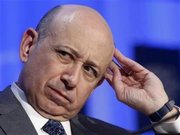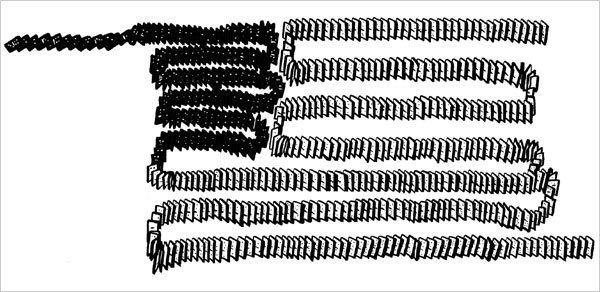Sept. 21 (Bloomberg) — The Bush administration sought unchecked power from Congress to buy $700 billion in bad mortgage investments from financial companies in what would be an unprecedented government intrusion into the markets.
Through his plan, Treasury Secretary Henry Paulson aims to avert a credit freeze that would bring the financial system and the world’s largest economy to a standstill. The bill would prevent courts from reviewing actions taken under its authority.
“He’s asking for a huge amount of power,” said Nouriel Roubini, an economist at New York University. “He’s saying, `Trust me, I’m going to do it right if you give me absolute control.’ This is not a monarchy.”
Read moreTreasury Seeks Asset-Buying Power Unchecked by Courts!
